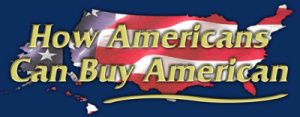“Having a knife company with a Portland region address, that’s part of the brand,” he said. “It’s just as much a part of those Nike brands as it is a part of Portland’s brand that we make cool stuff. And we make, in this case, very specialized, very high-quality cutlery and hand tools.”
The industry has challenges of its own. High steel tariffs, like a recent 50% fee on imported steel, have raised costs for companies sourcing material outside of the United States. Some companies, like The James Brand and Kershaw say they’re accepting the tariffs and cost increases. Others, like CRKT, are considering international alternatives.
For Leatherman and Steelport, both of which manufacture their line of products domestically, their “Made in the USA” stamp is a sense of pride despite the higher costs that come with it.
“The big part of being domestic has positive and negative stuff,” Khormaei said. “Our cost of goods are significantly higher. Everything that we do is higher.”
Sourcing its steel from a factory in Gary, Indiana, has been a point of pride for Steelport, Khormaei said.
“It was pretty powerful to be able to do that. And they invested significantly more money, energy and engineering time on our products than they would ever get back in revenue from us,” he said. “And why? They wanted to support another American-made industry.”
Read the article.


